
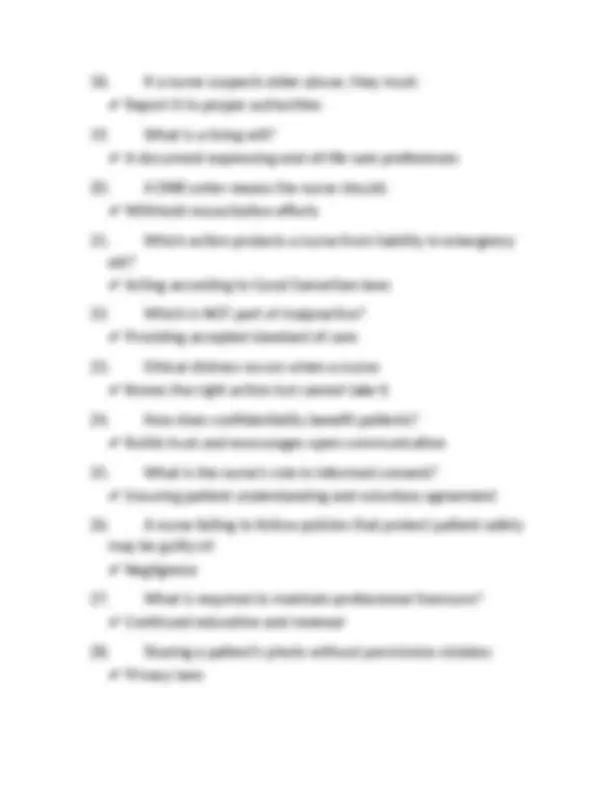
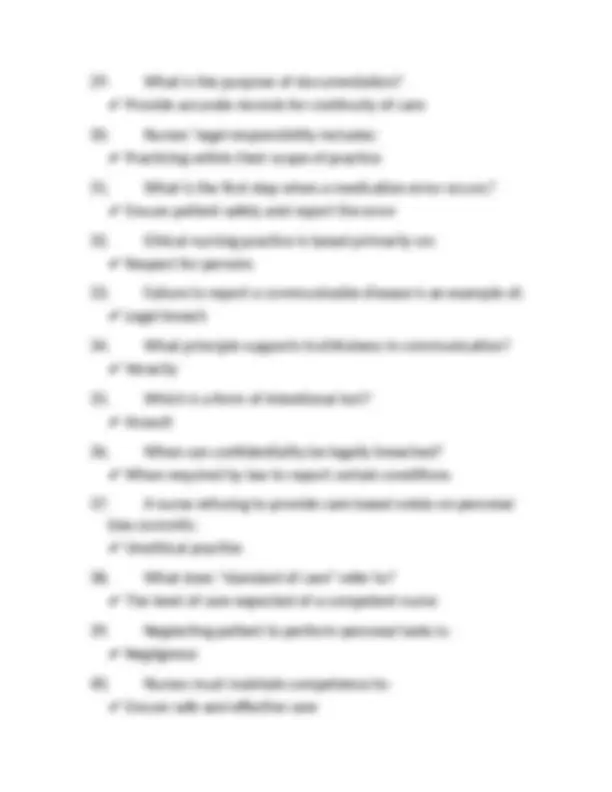
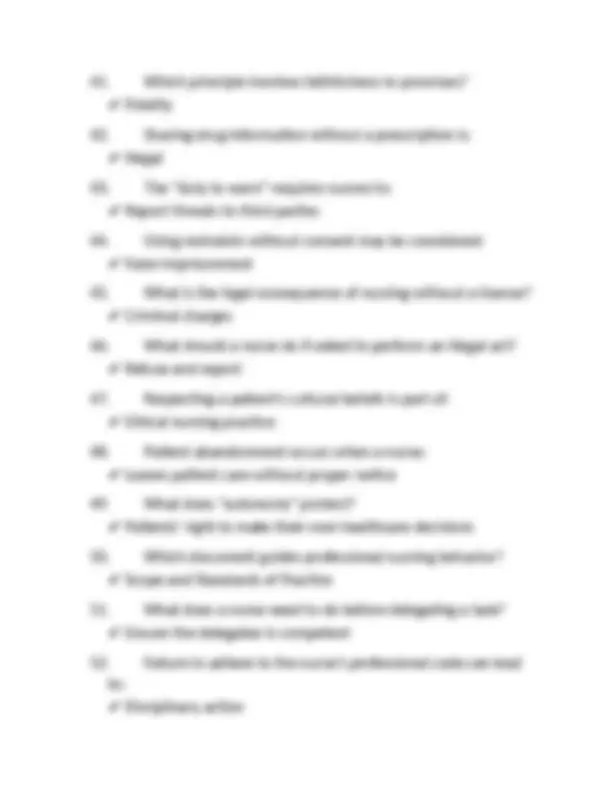
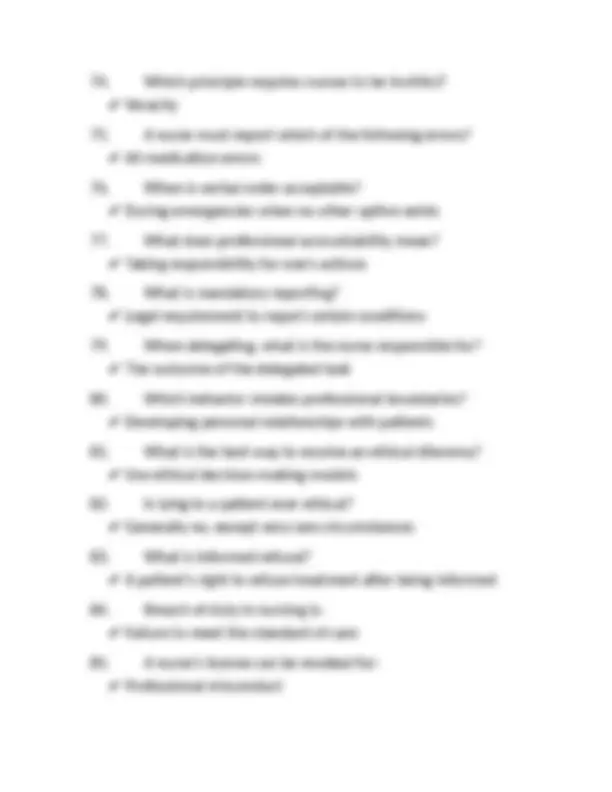
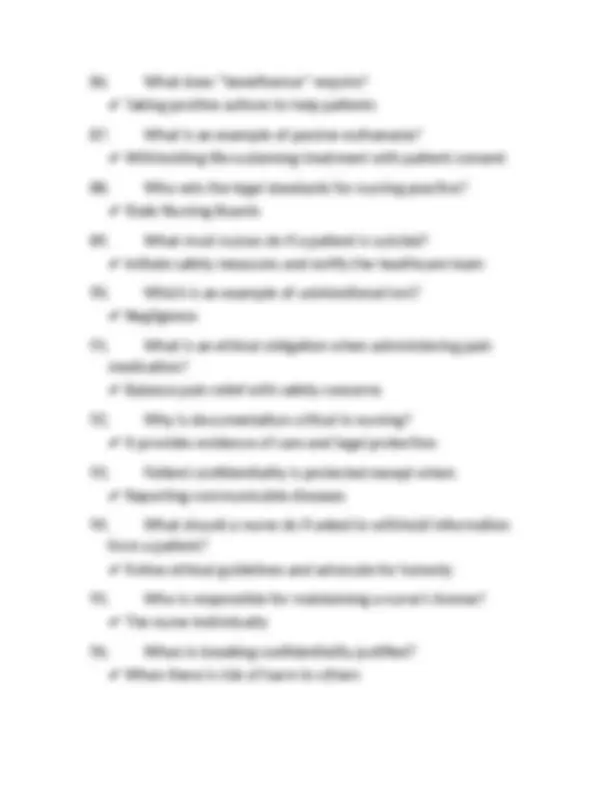
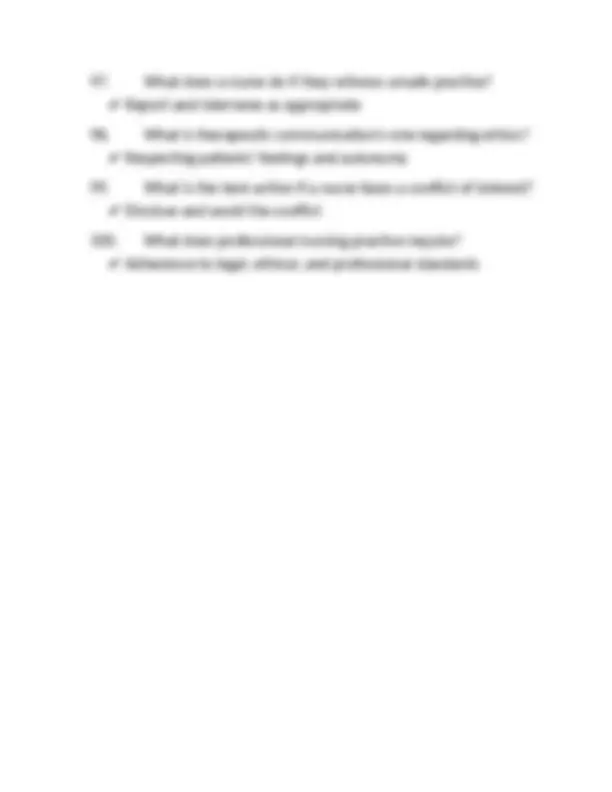


Study with the several resources on Docsity

Earn points by helping other students or get them with a premium plan


Prepare for your exams
Study with the several resources on Docsity

Earn points to download
Earn points by helping other students or get them with a premium plan
Community
Ask the community for help and clear up your study doubts
Discover the best universities in your country according to Docsity users
Free resources
Download our free guides on studying techniques, anxiety management strategies, and thesis advice from Docsity tutors
Core Principles and Practices in Nursing Law, Ethics, and Professionalism Core Principles and Practices in Nursing Law, Ethics, and Professionalism
Typology: Exams
1 / 10

This page cannot be seen from the preview
Don't miss anything!







This exam covers fundamental legal requirements, ethical frameworks, and professional standards vital for safe, responsible, and ethical nursing care. It emphasizes nurses’ duties, patient rights, confidentiality, and decision-making to promote quality healthcare and protect both patients and nurses.